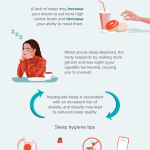Ever had one of those nights where sleep just seems to elude you? You toss and turn, counting sheep until the sun starts to rise, and suddenly you realize you’ve lost precious hours of sleep. It’s a frustrating experience, leaving you wondering if there’s any way to catch up on the rest you missed. Well, fear not, weary dreamer, because in this article, we’re going to explore the age-old question: “Is it possible to catch up on lost sleep?”
Sleep deprivation is no joke. It can leave you feeling groggy, irritable, and downright exhausted. But is there a way to make up for those lost hours and restore your energy levels? Many experts believe that it might be possible to catch up on sleep to some extent. In fact, research suggests that you can repay your “sleep debt” by getting extra shut-eye during the weekends or taking short naps during the day. But before you start hitting that snooze button with reckless abandon, let’s dive deeper into the science of sleep and explore the true potential of catching up on lost Z’s. So grab your favorite blanket, settle in, and let’s find out if it’s really possible to catch up on lost sleep.
Is it possible to catch up on lost sleep?
While it’s tempting to think that you can make up for lost sleep by sleeping in on weekends or taking long naps, the reality is that you can’t fully recover the sleep you’ve missed. While short-term sleep deprivation can be compensated for, chronic sleep loss can have long-lasting effects on your health and well-being. It’s important to prioritize regular, sufficient sleep to maintain optimal health.
Is it Possible to Catch Up on Lost Sleep?
Understanding the Importance of Sleep
Sleep plays a vital role in our overall health and well-being. It is during sleep that our bodies repair and rejuvenate themselves, allowing us to wake up feeling refreshed and ready to take on the day. Adequate sleep is essential for optimal cognitive function, immune system function, and emotional well-being. However, many of us struggle to get enough sleep due to various reasons such as work, stress, or lifestyle choices. This can lead to sleep deprivation and a sleep debt that needs to be repaid. But is it really possible to catch up on lost sleep?
The Concept of Sleep Debt
Sleep debt refers to the cumulative amount of sleep that we have missed over a period of time. When we consistently get less sleep than our bodies require, this debt builds up and can have negative effects on our health. It is often believed that we can repay this sleep debt by getting extra sleep on weekends or during holidays. However, the concept of “catching up” on sleep is not as straightforward as it may seem.
The Science behind Sleep Debt
While it is possible to compensate for short-term sleep deprivation by getting extra sleep, it is not a long-term solution. Studies have shown that even after a night of extended sleep, individuals with chronic sleep deprivation still experience cognitive impairments and other negative effects. This suggests that the body may not fully recover from sleep debt through occasional periods of extended sleep alone.
The Impact of Sleep Deprivation
Sleep deprivation can have serious consequences on our physical and mental health. It can lead to daytime fatigue, decreased cognitive function, impaired memory, decreased immune system function, and increased risk of chronic conditions such as obesity, diabetes, and cardiovascular disease. Therefore, finding ways to prioritize and improve our sleep is crucial for overall well-being.
The Role of Consistent Sleep Patterns
Establishing a consistent sleep routine can help regulate our body’s internal clock and promote better sleep. Going to bed and waking up at the same time every day, even on weekends, can help improve the quality and quantity of our sleep. By maintaining a regular sleep schedule, we can reduce the need to “catch up” on sleep and prevent the accumulation of sleep debt in the first place.
Quality over Quantity
While it is important to aim for the recommended 7-9 hours of sleep per night, the quality of sleep is just as important as the quantity. Prioritizing good sleep hygiene practices, such as creating a comfortable sleep environment, avoiding stimulants before bedtime, and practicing relaxation techniques, can help improve the overall quality of our sleep. By focusing on the quality of our sleep, we can optimize our rest and reduce the need for excessive “catching up” on lost sleep.
Strategies for Better Sleep
If you find yourself struggling to get enough sleep, there are several strategies you can try to improve your sleep quality and quantity. Here are a few tips:
Establish a Bedtime Routine
Creating a relaxing bedtime routine can signal to your body that it’s time to wind down and prepare for sleep. This can include activities such as reading a book, taking a warm bath, or practicing meditation or deep breathing exercises.
Create a Sleep-Friendly Environment
Make sure your bedroom is conducive to sleep by keeping it cool, dark, and quiet. Remove any distractions, such as electronic devices or noise sources, and invest in a comfortable mattress and pillows.
Avoid Stimulants and Electronics Before Bed
Caffeine, nicotine, and alcohol can interfere with your sleep, so it’s best to avoid them in the hours leading up to bedtime. Additionally, the blue light emitted by electronic devices can disrupt your body’s natural sleep-wake cycle, so try to limit your screen time before bed.
Manage Stress and Anxiety
Stress and anxiety can greatly impact your ability to fall asleep and stay asleep. Find healthy coping mechanisms for managing stress, such as practicing mindfulness, engaging in physical activity, or talking to a trusted friend or therapist.
Conclusion
While it may not be possible to fully “catch up” on lost sleep, it is important to prioritize and improve our sleep habits to minimize the negative effects of sleep deprivation. By establishing consistent sleep patterns, prioritizing sleep quality, and implementing strategies for better sleep, we can optimize our rest and enhance our overall well-being. Remember, sleep is not a luxury but a necessity for a healthy and fulfilling life.
Key Takeaways: Is it possible to catch up on lost sleep?
- 1. It is possible to catch up on lost sleep by getting extra sleep on subsequent nights.
- 2. Consistency in sleep schedule is important for overall sleep health.
- 3. Quality of sleep matters more than quantity.
- 4. Napping can help recharge and compensate for sleep debt.
- 5. Establishing a bedtime routine can improve sleep quality and duration.
Frequently Asked Questions
Can you catch up on lost sleep?
Many people wonder if it’s possible to catch up on lost sleep. The answer is yes, to some extent. While it’s not possible to completely make up for all the sleep you’ve missed, you can still partially recover from sleep debt.
When you don’t get enough sleep, your body accumulates sleep debt, which can lead to various health issues. However, by prioritizing sleep and making an effort to get extra rest on the weekends or during days off, you can gradually reduce your sleep debt and improve your overall well-being.
How much sleep debt can you recover?
While catching up on lost sleep can be beneficial, it’s important to note that you can’t fully recover from a large sleep debt in just a few nights. The amount of sleep debt you can recover depends on several factors, including the severity and duration of the sleep deprivation.
Generally, it’s recommended to aim for an extra 1-2 hours of sleep per night to gradually reduce your sleep debt. However, it’s essential to establish a consistent sleep schedule and prioritize getting enough sleep on a daily basis to prevent further accumulation of sleep debt.
What are the effects of chronic sleep deprivation?
Chronic sleep deprivation can have significant consequences on your physical and mental health. Lack of sleep can impair cognitive function, increase the risk of accidents, weaken the immune system, and contribute to mood disorders such as depression and anxiety.
Additionally, chronic sleep deprivation has been linked to an increased risk of chronic conditions such as obesity, diabetes, and cardiovascular diseases. It’s crucial to prioritize sleep and make necessary lifestyle changes to ensure you get enough rest on a regular basis.
How can you improve sleep quality?
If you’re struggling with sleep debt or poor sleep quality, there are several strategies you can try to improve your sleep. Establishing a consistent sleep schedule, creating a relaxing bedtime routine, and ensuring your sleep environment is comfortable and conducive to rest are all important factors.
Avoiding stimulants like caffeine and electronic devices before bedtime, practicing relaxation techniques such as deep breathing or meditation, and engaging in regular exercise can also promote better sleep. If sleep problems persist, it’s advisable to consult a healthcare professional for further evaluation and guidance.
Why is sleep important for overall health?
Sleep plays a vital role in maintaining overall health and well-being. During sleep, the body carries out essential restorative processes, such as repairing damaged cells, consolidating memories, and regulating hormones.
Adequate sleep is crucial for optimal brain function, emotional well-being, immune system function, and physical health. It supports healthy cognitive function, improves mood and concentration, and helps prevent chronic diseases. Prioritizing sleep is essential for maintaining optimal health and overall quality of life.
Tips to Help You Sleep…. Can You Catch Up on LOST Sleep?
Final Thoughts
After diving into the question “Is it possible to catch up on lost sleep?” it’s clear that the answer isn’t as simple as a straightforward yes or no. While the concept of catching up on sleep sounds appealing, the reality is that it may not fully compensate for the sleep debt accumulated over time. However, implementing healthy sleep habits and making an effort to prioritize rest can certainly have a positive impact on our overall well-being.
It’s important to remember that quality sleep is crucial for our physical and mental health. While a few extra hours of sleep on the weekends may help us feel refreshed temporarily, it may not fully reverse the effects of chronic sleep deprivation. Consistency is key when it comes to establishing a healthy sleep routine. By prioritizing regular and sufficient sleep every night, we can aim to prevent the need for “catching up” in the first place.
In conclusion, while catching up on lost sleep may provide some short-term benefits, it is not a long-term solution to chronic sleep deprivation. Instead, focusing on maintaining a consistent sleep schedule and adopting healthy sleep habits will ultimately lead to better overall sleep quality and well-being. Remember, a good night’s sleep is priceless, so let’s make it a priority in our lives.




